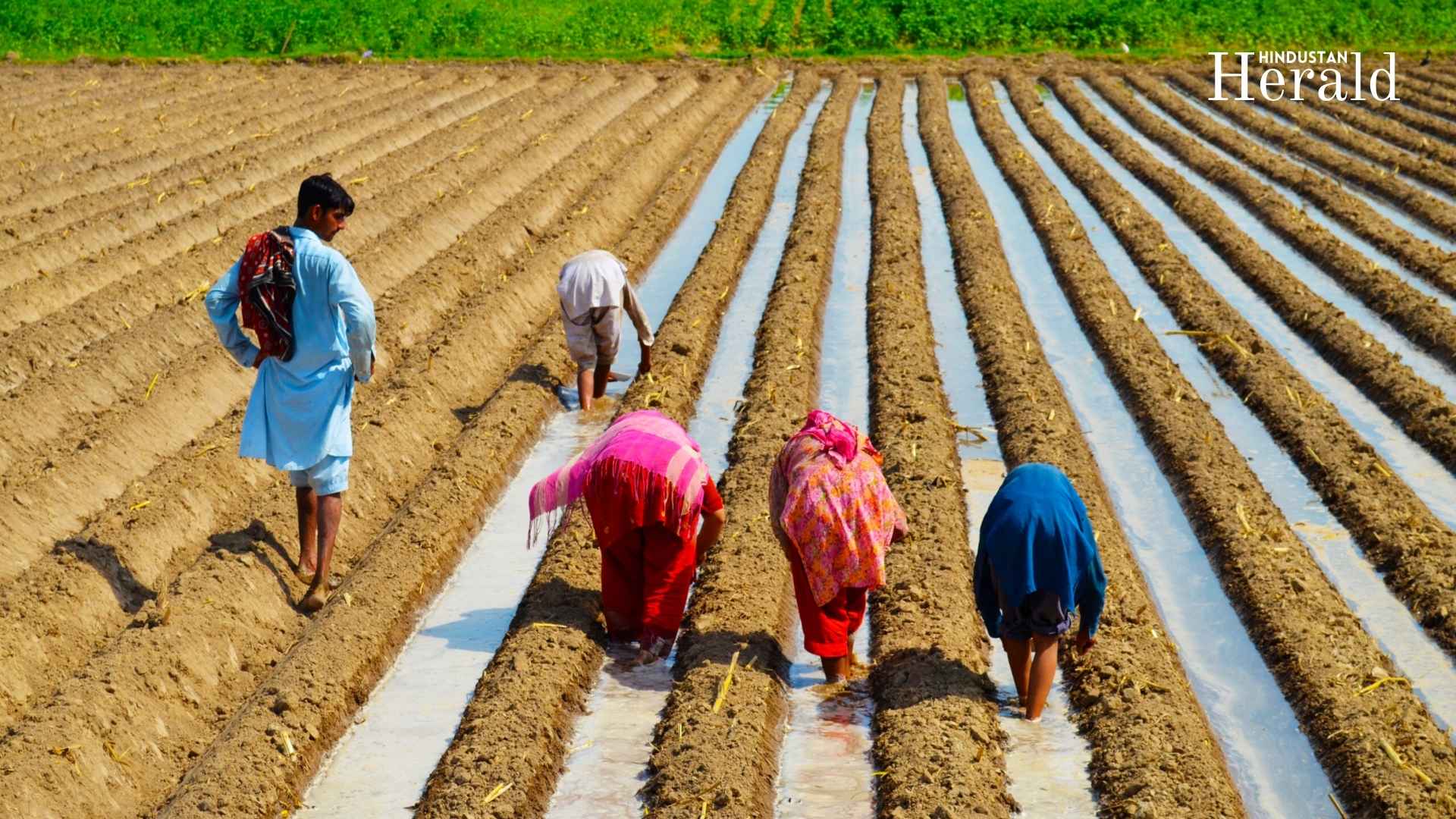Pakistan Farmers Plan Massive April 13 Protest Against Green Pakistan Initiative’s Corporate Farming Model

Key Highlights:
Pakistan Farmers Protest Update: In a bold response to growing agrarian tensions, Pakistan’s farmers have announced a nationwide protest on April 13, 2025, opposing corporate farming introduced under the Green Pakistan Initiative (GPI). According to a report by Dawn, the call for protest comes amid mounting concerns over land ownership, eviction threats, and the alleged corporatization of agriculture.
Who Is Leading the Movement?
The protest is being spearheaded by several farmer and tenant advocacy groups, including:
- Pakistan Kissan Rabita Committee
- Anjuman Mazareen Punjab
- Hari Jedojehad Committee
- Crofter Foundation
These organizations jointly decided to mobilize rallies and conventions across towns and public-sector agricultural farms on April 13.
Pakistan Farmers’ Demands: What Are They Fighting For?
The protesting farmers have outlined a clear set of demands:
- Immediate halt to corporate farming under GPI
- Eviction of peasants from cultivated lands to stop
- Ban on construction of controversial canals in South Punjab
- Distribution of public sector farmland among peasants
- Cancellation of outstanding dues notices to tenant farmers
- Fixation of wheat procurement price at PKR 4,000 per 40 kg
These demands are driven by fears that the government’s new agribusiness strategy will benefit corporate players while displacing generational farmers from state-owned agricultural lands.
What Is the Green Pakistan Initiative (GPI)?
Launched by Pakistan’s federal government, the Green Pakistan Initiative is a flagship plan to modernize agriculture. The initiative focuses on:
- Converting uncultivated land into high-yield farms
- Using AI-based monitoring systems
- Implementing advanced irrigation techniques
- Promoting high-quality seeds and modern farming equipment
While the GPI is projected as a solution to food security and climate challenges, critics argue it poses existential risks to smallholders and landless peasants.
Rural Voices: Fears of Displacement and Marginalization
Farmer unions and civil society organizations fear that the transition to large-scale corporate agriculture will marginalize traditional farming communities. Activists warn that this shift:
- Prioritizes profit over people
- May strip access to critical agricultural resources
- Could increase rural unemployment and migration
They also highlight that state-led eviction drives and millions in pending dues have created a volatile environment for tenant farmers who already operate under insecure tenure agreements.
Why This Matters
Pakistan’s agricultural sector employs nearly 38% of the workforce and contributes about 19% to GDP. Any policy shift that affects land rights and resource access has the potential to trigger major socioeconomic consequences.
With wheat harvest season underway, the farmers’ demand for a fair minimum support price of PKR 4,000 per 40 kg reflects broader inflationary pressures and rising input costs.
Looking Ahead: April 13 as a Flashpoint
As April 13 nears, all eyes will be on how the federal government responds. Will there be a rollback of policies? Will farmers’ voices be heard?
Analysts believe that unless a constructive dialogue is initiated, Pakistan could be heading toward prolonged agrarian unrest.
The Hindustan Herald Is Your Source For The Latest In Business, Entertainment, Lifestyle, Breaking News, And Other News. Please Follow Us On Facebook, Instagram, Twitter, And LinkedIn To Receive Instantaneous Updates. Also Don’t Forget To Subscribe Our Telegram Channel @hindustanherald








